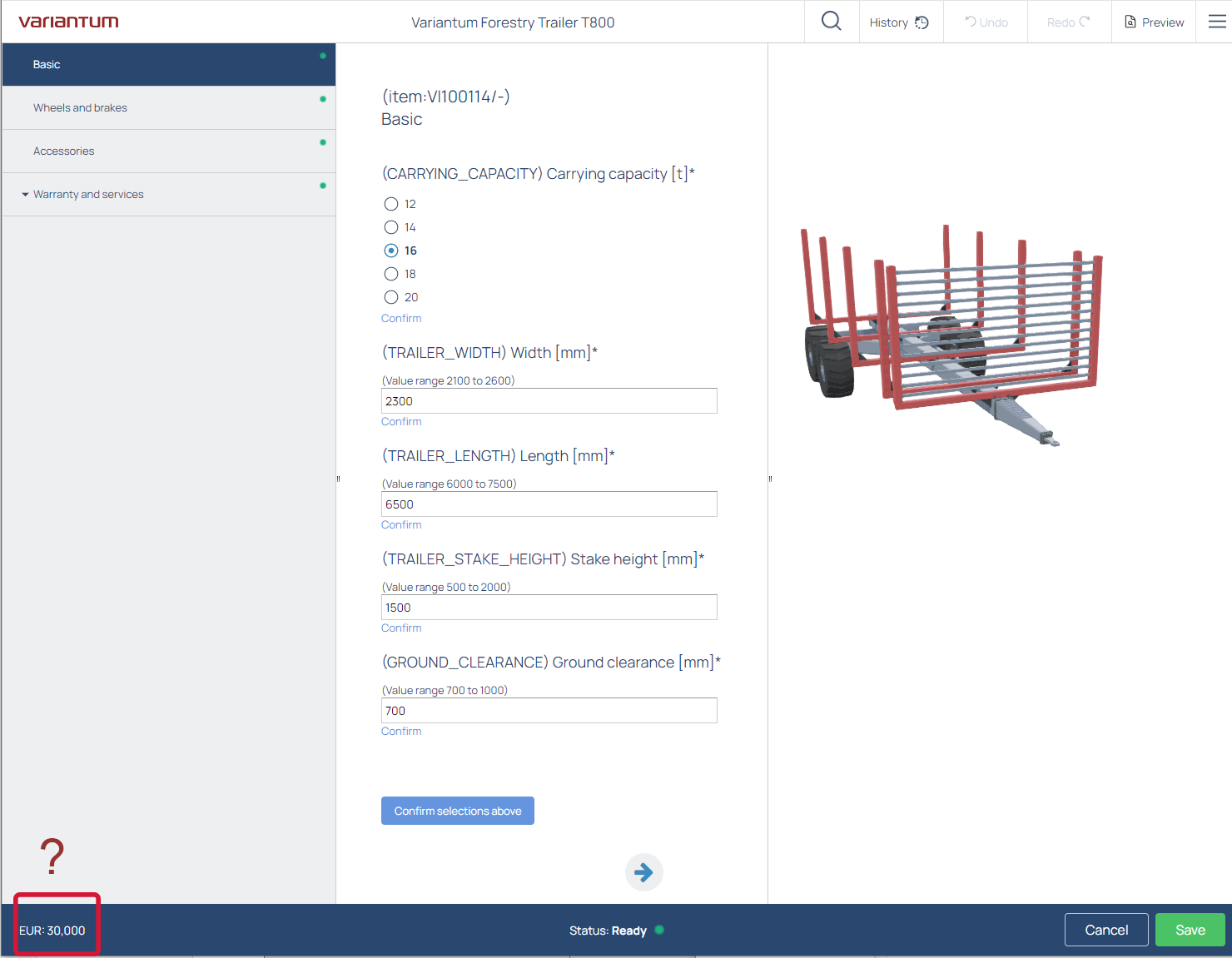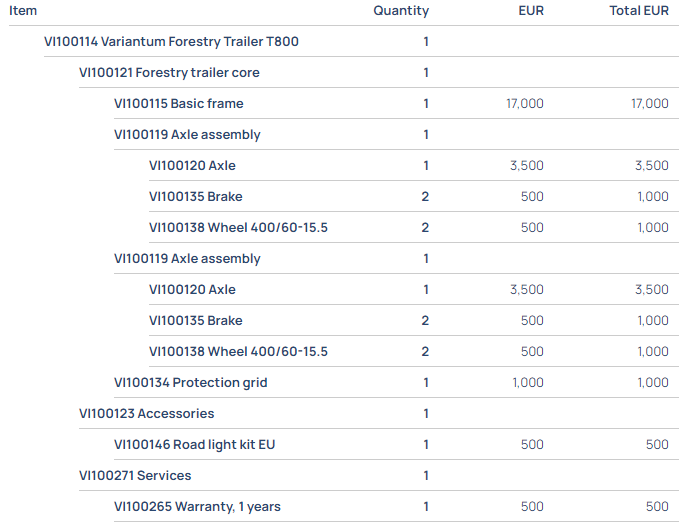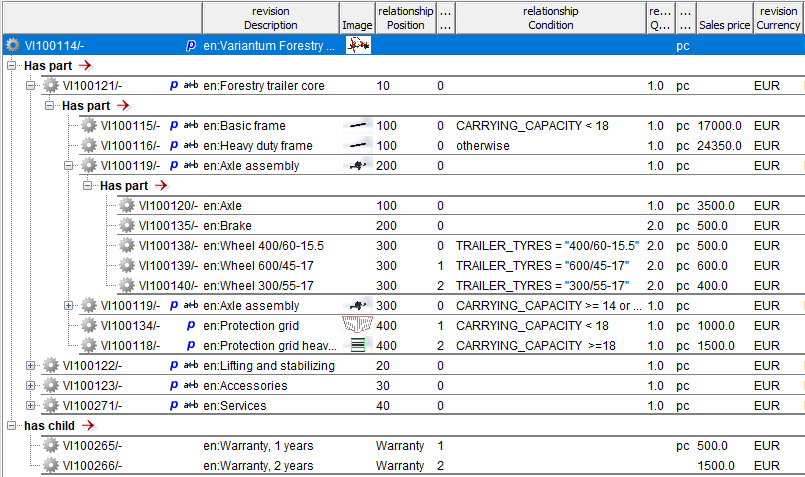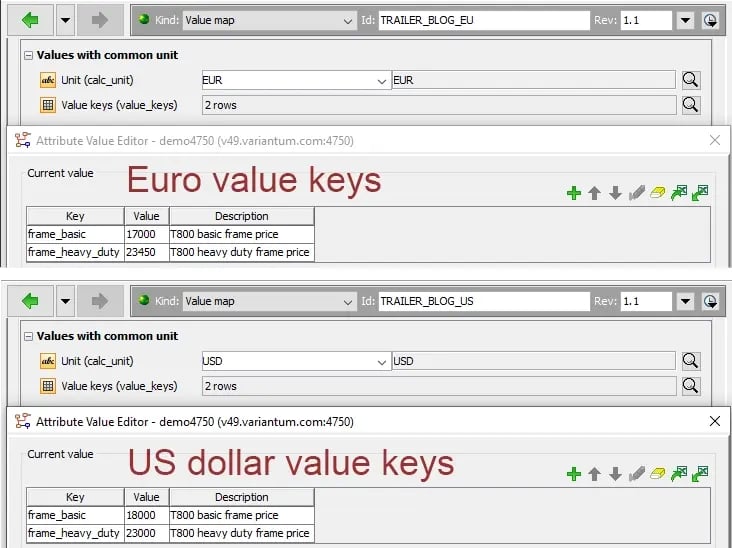It is increasingly important that CPQ systems give customers more calculation results than just the price of the product that a customer is configuring. For example, the customer may want to know the monthly price of a maintenance contract or the CO2 emissions from the manufacture and use of the product.
At Variantum, we emphasize the importance of defining necessary calculations through data rather than customer-specific code. This approach ensures flexibility and adaptability in calculation models, which are crucial for handling the complexity and variability in pricing customizable products and services. Beyond mere configuration, pricing may vary based on market areas, customer relationships, and applicable volume discounts.
This blog post introduces FlexCalc, a versatile calculation mechanism within VariSuite CPQ that leverages current configuration and structure-based calculation models. Let's explore the concept of these models before diving into FlexCalc's specifics.
Understanding Structure-Based Calculation Models
Structure-based calculation models derive a product structure, or sales bill-of-materials (SBOM), based on the current selections in the configuration. The prices and/or costs of the items within the SBOM are known and can be aggregated or utilized in further calculations. This method is commonly applied in CPQ systems.
For instance, consider a forestry trailer priced at €30,000 as shown in the illustrations below. This price originates from the configuration-specific sales structure (breakdown structure), where each item of the SBOM directly lists the sales price in Euros. Thus, the total sales price is simply the sum of the prices of the selected SBOM items.


The items of the sales BOM above were selected from the generic structure-based price model below.

For example, the “Basic frame” was included in the sales BOM based on the condition CARRYING_CAPACITY < 18 as the selected carrying capacity is 16 tons. Had the carrying capacity been 18 tons or more, a “Heavy duty frame” would have been selected.

VariSuite CPQ incorporates a structure generator that simplifies the inclusion of configuration-specific SBOM elements from a generic sales structure. For example, items included in the sales configuration model are automatically included in the SBOM. Typically, the SBOM items form the basis of the quotation offer rows.
The VariSuite CPQ structure price mechanism, illustrated above, includes a method to calculate markups using factors. This conditional multiplication can specify different margins for items in various groups—higher for key components and lower for commodities—adjustments for customers or groups, discount reserves, and desired margin levels.
Introducing FlexCalc
FlexCalc is an innovative VariSuite CPQ mechanism designed for calculating prices, costs, mass, monthly costs, and more. It extends the basic structure price mechanism in several ways:
- Multiple Calculation Structures: Different structures can exist simultaneously, such as one for calculating CO2 emissions and another for pricing.
- Versatile Calculations: Each calculation structure can serve as a basis for various calculations, including monthly price, cost, emissions, and even mass.
- Value keys (generalized price lists): These support market-area and customer-specific prices and other calculable elements, enhancing the flexibility of the SBOM.
- Dynamic Expressions: Instead of fixed values, FlexCalc uses expressions to determine an item's effective value.
- Code results: These can identify needs for customization or special approvals. For example, warn that the additional price of a requested customization of an item is not included.
- Conditional Visibility: Calculations can be disabled or hidden. For example, cost or margin are not shown when configuring with a customer.
- Configurable Methods of Combining Results of Sub-Structure: For example, a delivery time simulation might select the shortest time calculated from alternative manufacturing routing structures instead of summing.
- Derived Calculations: Additional calculations, like margins and sales-person bonuses, can be derived from primary figures like sales price and cost.
- Configurable number formats and rounding specifications.
Value keys
The value key mechanism in FlexCalc significantly enhances the adaptability of structure-based calculations. Rather than storing a fixed price or cost directly in an SBOM item, a value key such as "frame_basic" can be assigned. This value key links to a value from a value map that determines the actual price, cost or other value based on several factors, including the sales channel, geographic region, or specific customer group. This flexibility allows prices and costs to vary appropriately in response to external conditions, ensuring that VariSuite CPQ can accommodate market dynamics, regional cost variations, and customer-specific agreements effectively. This method is particularly useful for companies that need to maintain competitive and relevant pricing across diverse market conditions. Correct value maps can be made available based on the sales channel, market area, customer, and other factors. For example, the below image shows two value maps, one for EU in Euros and one for US in USD. A heavy-duty frame is cheaper in the US, due to market conditions.

Expressions
FlexCalc elevates the standard fixed-value approach by utilizing expressions to calculate the costs or prices or other values of SBOM items dynamically. Each calculation within FlexCalc specifies which item attribute contains the necessary expression and provides an optional default expression for straightforward scenarios. This capability is especially beneficial for parametric components, such as calculating the cost or mass of a conveyor belt, which might involve a base value plus an additional value per meter. Expressions can be complex and reference any attribute values of the SBOM items, offering unparalleled flexibility in pricing calculations. This feature ensures that even the most complex calculation models can be handled efficiently, providing accurate and tailored calculation information directly within the configuration process. Additionally, the unit of measure can also be specified with an expression and a default expression.
Conclusion
FlexCalc represents a significant leap forward in the capabilities of VariSuite CPQ, offering unparalleled flexibility and precision in pricing and other calculations of complex products. By integrating dynamic value keys and sophisticated expression-based calculations, FlexCalc allows businesses to respond effectively to the diverse and evolving needs of the marketplace. This helps to solidify the position of VariSuite as an essential asset for companies looking to enhance their competitive edge in configurable product markets.